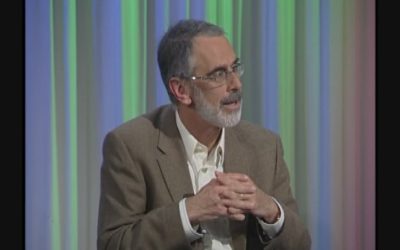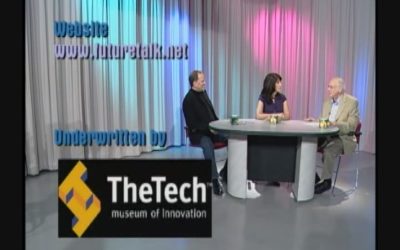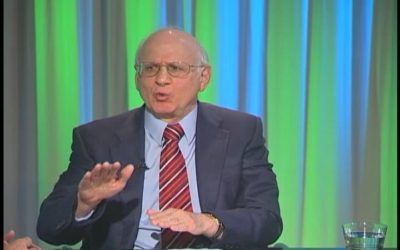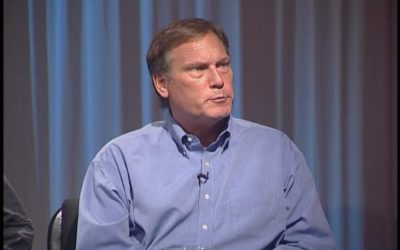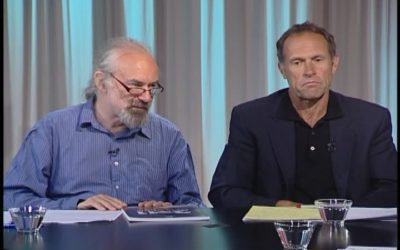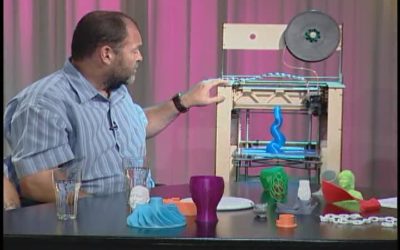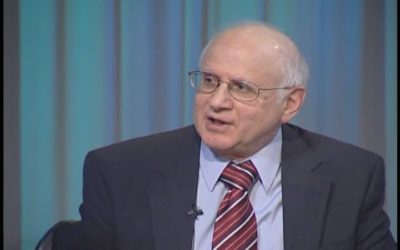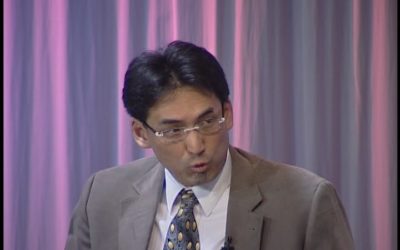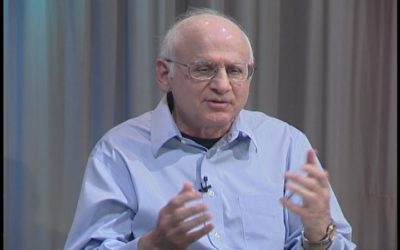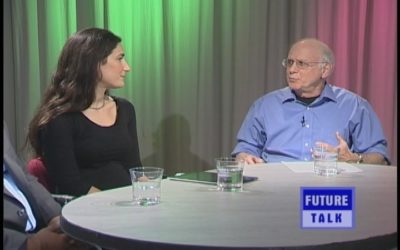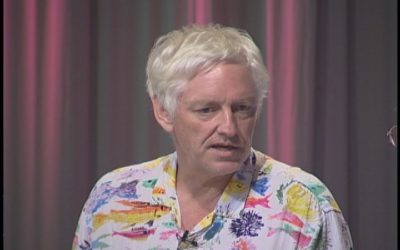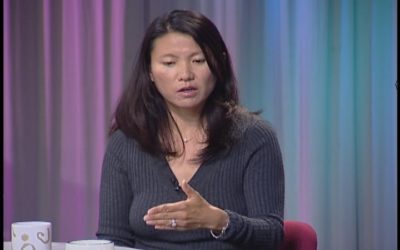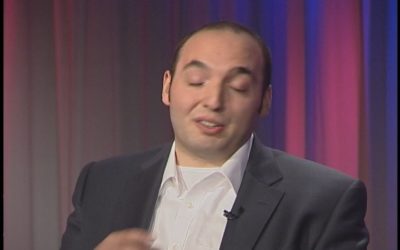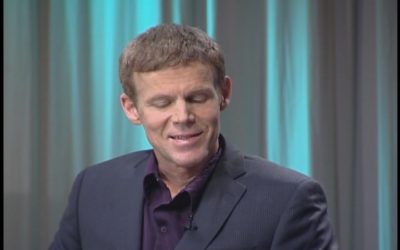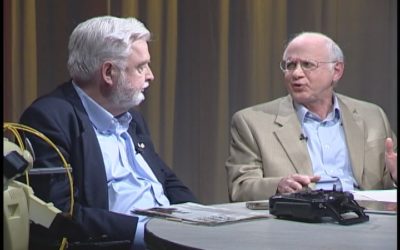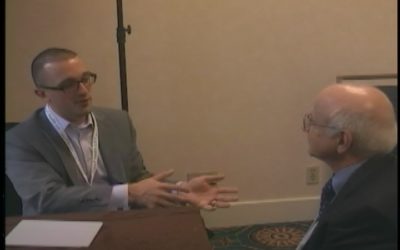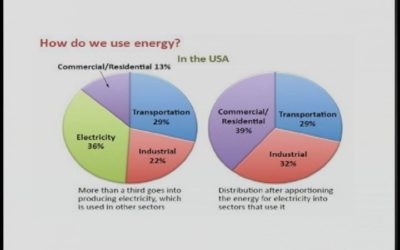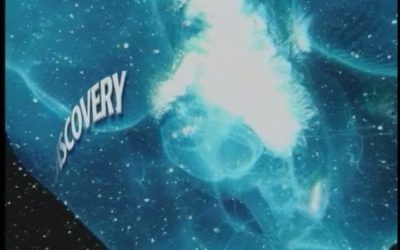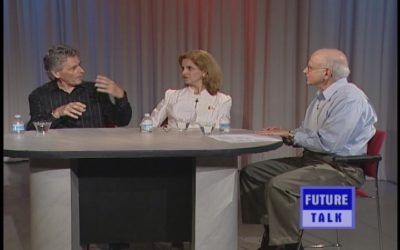This episode examines recent progress in genetics, including advances in genetic science, practical applications of genomics, and ethical issues raised by genome technology. The guests are Michael Snyder, PhD, Chairman of the Genetics Department and Director of the Center of Genomics and Personalized Medicine at Stanford University, and Russ Altman, MD, PhD, Professor of Bioengineering, Genetics and Medicine and former Director of Stanford's Bioengineering Department. Michael Snyder is a...
Future Talk – Show 38 Peace Innovation Lab
Future Talk – Clean Renewable Energy
This episode features an interview with leading atmospheric scientist Mark Z. Jacobson, director of the Atmosphere/Energy Program at Stanford University, who claims that it's possible to fill the world's energy needs by clean renewable sources such as wind, water and solar power alone, without having to use fossil fuels at all. Prof. Jacobson studies the physical and chemical processes of air pollution and global warming, and looks for ways to integrate clean energy sources into the power grid.
Future Talk – New Frontiers in Photography
This episode looks at a revolutionary new advance in the field of photography. The guest is Paul Gallagher, V.P. of Strategic Market Development at Pelican Imaging, Inc., maker of the PiCam. The PiCam can take pictures that can be refocused after the picture has been taken, including selective refocusing of particular parts of the picture, and can take 3D pictures that can be printed by a 3D printer.
Future Talk – show 45 The Science of Scent
Olfactory technology is trying to do with the sense of smell what we can already do with the senses of sight and hearing. Just as we can record pictures and sounds by mechanical means, store them digitally in computers, and reproduce them at will, a group of scientists is trying to do the same thing with smells
Future Talk – show 44 The Millennium Project
The Millennium Project (www.millennium-project.org) is a global network of futurists and other thinkers operating in more than 50 different countries and trying to resolve the world’s most pressing problems. Supported by a wide variety of governments, NGOs, universities, corporations and the United Nations, the Millennium Project has defined 15 global challenges which it sees as the most important to solve. In this episode of Future Talk, we discuss two of those challenges: peace and conflict...
Future Talk – show 43 3D Printing
A look at the rapidly expanding field of 3D printing, which some people feel has revolutionary potential for society. 3D printers are similar to ordinary printers, except that instead of depositing tiny drops of ink on paper, they deposit tiny threads of plastic or other material on a platform, building layer upon layer to create solid 3-dimensional objects.
Future Talk – show 41 Innovation for Jobs Summit
This episodes's topic is the Innovation for Jobs Summit meeting (I4J Summit), an international two day conference of about 60 top leaders from different sectors of society, looking for ways to harness technological innovation to create more meaningful employment opportunities for more people. One of the themes was that society is divided into different vertical 'silos' such as government, business and education, and these silos are often unable to communicate or cooperate effectively on...
Future Talk – show 38 Peace Innovation Lab
This episode explores whether social networking technology can advance the cause of peace in the world.
Future Talk show 37 – Advances in Neuroscience
The human brain is one of the most important objects in existence, but also one of the most difficult to study. In this episode, we look at recent advances in neuroscience with two guests; Michael Merzenich, professor of neuroscience at the University of California at San Francisco and Simon Tan, clinical neuropsychologist at Stanford Medical Center.
Future Talk – 36 Literacy in the Age of Google
What does it mean to be literate in the age of the Internet? Most of us depend on the computer to provide most of our information about the world, but many people still have difficulty accessing this information quickly and efficiently. What skills are needed to become a 'power searcher' on the Web, and how can these skills be strengthened?
Future Talk – show 35 Mobile Apps and Mental Health
Smartphones have proven to be an incredibly versatile platform that enables us to do a lot of things we could never do before. In this episode, we have two guests who are deeply involved in using mobile technology to promote mental health.
Future Talk – The Higgs Boson
The recent discovery of the Higgs boson is probably the most important development in particle physics in the past several decades. First postulated by British scientist Peter Higgs in 1964, the Higgs boson and its boson field are believed to be what enables other particles to have mass, and it was considered to be a crucial missing piece in the world of particle physics.
Future Talk – The Maker Faire
The Maker Faire (www.makerfaire.com) is one of the world's top 'do-it-yourself' events, featuring exhibits ranging from robots, cardboard helicopters, all kinds of electronic devices, unusual artwork and much more. It's part of the Maker Movement which favors crowd sourcing and community based efforts to achieve results.
Future Talk – Artificial Intelligence
This episode features a discussion of artificial intelligence with one of the world's leading authorities in the field. Peter Norvig is Director of Research at Google, a Fellow of the Association for the Advancement of Artificial Intelligence, co-author of the leading college textbook on A.I., and co-creator of a popular online course in A.I. that attracted over 160,000 students. Prior to joining Google, he worked at the NASA Ames Research Center, where he was head of the Computational...
Future Talk – Neurobotic Research
One of the most interesting areas of science is the relatively new field of neurobotics. It combines neuroscience with robotics, and is closely related to artificial intelligence. One of its goals is to create prosthetic limbs that can function as easily as natural ones and are controlled by brain power alone. One of the leaders in this field is Yoky Matsuoka, who is the guest on this episode of Future Talk.
Future Talk – Mysteries of the Universe
This episode looks at one of the most mysterious forces in the universe, gravitation. Host Martin Wasserman interviews two Stanford scientists who are attempting to prove Einstein's theory that gravity is not a force at all, but the result of the curvature of space, which occurs in the presence of large bodies such as stars and planets. Particularly, they are looking to prove the existence of gravity waves, thought to occur when violent events such as collisions between stars send ripples...
Future Talk – 28 The Overconnected Society
This episode features an interview with Bill Davidow (www.davidow.com), author of the recent book 'Overconnected: The promise and threat of the Internet'. The book, which has received high praise from many of Silicon Valley's top luminaries, argues that despite its many benefits, the Internet also poses huge risks. Davidow argues that the constantly accelerating speed at which information can be moved can have a destabilizing effect on society, and even lead to catastrophic consequences if the...
Future Talk – 27 Looking into the Future
In this episode, host Martin Wasserman discusses possible future scenarios with two futurists. Futurist David Passig is an Associate Professor at Bar-Ilan University in Israel, where he heads the Graduate Program in Information and Communication Technology as well as the Virtual Reality Lab. He's written two books that were bestsellers in Israel, 'The Future Code' and '2048'. He's a frequent lecturer and consultant, and has a Ph.D. in Anticipatory Anthropology from the University of Minnesota....
Future Talk – 26 The Future of Robotics
This episode looks at the rapidly growing field of robotics. The guest is Chuck Colby, whose 50+ year career as an inventor has produced some notable firsts, including the first home satellite receiver station, the first low-cost telephone answering machine, the first low cost TV camera, police car computers, airport security devices and much more. He started his career by building what's believed to be the world's first commercial pocket transistor radio at the age of 12.
Future Talk – Infotech and Health
New information technology is having a huge impact on how we manage our health. People are gaining better and faster access to all kinds of health information, both from doctors and other health consumers, and becoming much more active participants in their own well being. This episode looks at several young companies that are offering ways for people to use this technology for their benefit.
Future Talk – The Future of Energy
ne of the biggest problems facing the world today is finding enough energy to feed our ever expanding industrial economy in a way that's affordable, sustainable and environmentally clean. One of the leaders in energy research is SRI International, formerly known as the Stanford Research Institute, and today one of the top scientific research organizations in the world. This episode has two guests from SRI, and a video showing how we might get energy from ocean waves in the future.
Future Talk – 23 – The SETI Institute
SETI stands for search for extraterrestrial intelligence, or ETI, and the SETI Institute has been searching for ETI since the mid 1980s. They do this by using radio telescopes to search the heavens for signals that look as if they could come from an intelligent source. The Institute is largely funded by private donors, including Microsoft co-founder Paul Allen and actress Jodie Foster, who starred in the science fiction film 'Contact', based on the Institute's work.
Future Talk – 22 – Triple Helix Conference
This episode focuses on the ninth annual Triple Helix Conference, an event which is most often held in Europe, but which was held in 2011 at Stanford University in California. The aim of the conference is to foster innovative approaches to solving world problems by promoting greater cooperation between industry, government and academia. This is done by lectures, panels and games, as well as private meetings. In addition to on location footage from the conference itself, the show features two...

